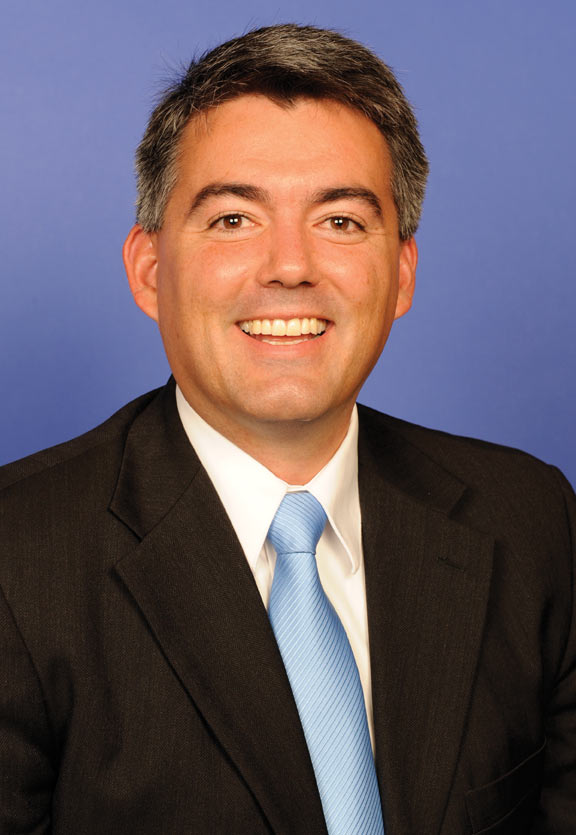Rep. Gardner Seeks Solutions
Colorado Congressman Attuned To Nursing Care Issues
Patrick Connole
6/1/2011
Freshman Rep. Cory Gardner (R-Colo.) has a long way to go before he reaches the long term care-age range, being only 36, but he is attuned to the nursing care issue both as a lawmaker and a member of a family with vibrant elderly members.

Gardner says he has three grandparents over the age of 90, who while receiving some care still reside in their homes. “Yes, they are still out and about,” he says.
More generally, Gardner says he knows the importance of caring for the elderly through his work in his district, Colorado’s 4th, which includes Fort Collins in a vast swath of land both east and north of Denver.
“My constituents are really concerned about creating a health care system that is sustainable, allows for consumer choice, and increases quality," Gardner says. Long term care is a large part of that equation, and the focus should be on finding solutions to the problems patients and residents are experiencing, he says.
Focus On Telemedicine
While a state legislator in Colorado, he worked on special programs to bring high-tech telemedicine to rural communities, like the ones that exist in his district. Telemedicine refers to the use of medical information exchanged from one site to another via electronic communications to improve patients’ health status.
Videoconferencing; transmission of still images; e-health, including patient portals; remote monitoring of vital signs; continuing medical education; and nursing call centers are all considered part of telemedicine and the broader term, telehealth.
The Colorado program had the goal of demonstrating that an integrated delivery system can extend its services into rural areas via telemedicine and deliver the same quality of care as if the care was provided face-to-face. “The pilot program did a great deal to help,” he says.
Future legislation may be coming at the federal level to improve rural health across the country, Gardner adds.
Gardner was elected to office partly on a platform of “repeal and replace” the Democratic-passed health care reform law, which he says will see its true test come the next election.
Earlier this year he sponsored a budget amendment to defund part of the health care reform law. The amendment would prohibit paying the salaries of employees who help set up health insurance exchanges to be created by the reform law.
Health Reform Changes To Come
“I think the biggest changes to the health care law will come in 2012, with possible changes in the Senate and White House [from Democratic to Republican control],” Gardner says.
This seems all the more true now that the Republican leaders in the House and Senate have written off much chance of moving on health reform repeal for the forseeable future.
On the powerful House Energy and Commerce Committee, Gardner is working to open more energy corridors in the United States and sees opportunities for the Obama administration to do more for easing sky-high energy prices.
“There are permits [for more domestic drilling] that are being held up by bureaucracy,” he says. With additional reserves from domestic sources, a slice of the imports needed from Saudi Arabia and other nations could be curtailed, Gardner says. “My focus is on how we can build a stronger economy with the resources we have.”
Before running and winning his current office, Gardner grew up working in his family’s farm implement dealership. After earning a law degree, he served as general counsel and legislative director for former U.S. Sen. Wayne Allard and worked for the National Corn Growers Association.
He currently resides with his wife and young daughter in Yuma, Colo., in a house that once belonged to his great-grandparents.